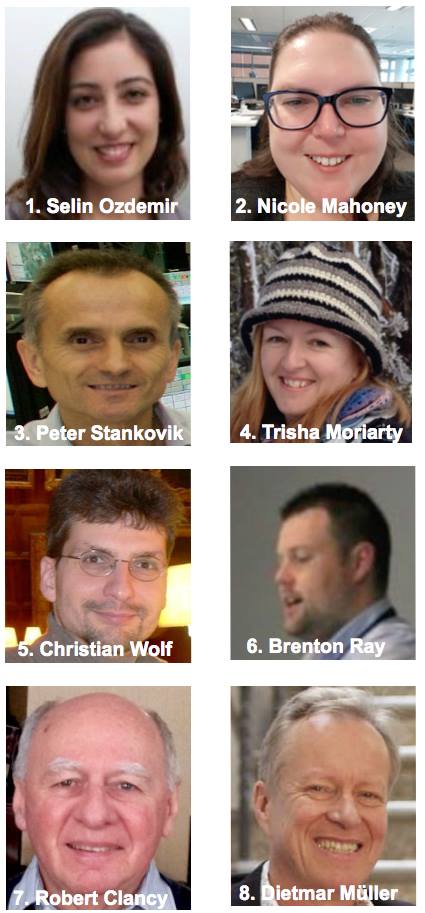The Mapping Sciences Institute of Australia (NSW Division) recently hosted its Annual MSIA Seminar at the Aspire Hotel in Ultimo, celebrating its 65th year promoting mapping. Prof. Dietmar Müller gave a presentation on “Using big data analytics to reveal what controls seabed geology”.
World’s ocean basins contain a rich and nearly continuous record of environmental fluctuations preserved as different types of deep-sea sediments. The sediments represent the largest carbon sink on Earth and its largest geological deposit. Knowing the controls on the distribution of these sediments is essential for understanding the history of ocean-climate dynamics, including changes in sea-level and ocean circulation, as well as biological perturbations. Indeed, the bulk of deep-sea sediments comprises the remains of planktonic organisms that originate in the photic zone of the global ocean implying a strong connection between the seafloor and the sea surface.

More information about the various talks and presenters can be found, here.
![]()
